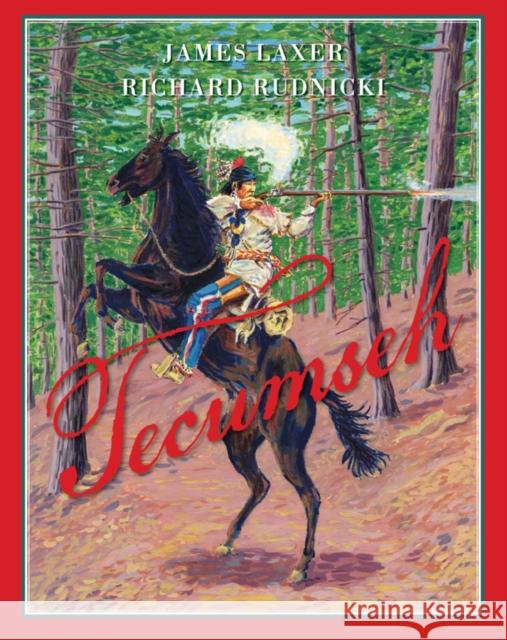Tecumseh » książka
Tecumseh
ISBN-13: 9781554981236 / Angielski / Twarda / 2012 / 56 str.
Two hundred years after his death, the Shawnee chief Tecumseh is still considered one of the greatest leaders of North America's First Peoples. This pictorial biography tells the story of his remarkable life, culminating in the events of the War of 1812.
Tecumseh (meaning "shooting star" in Shawnee) was named after the meteor that auspiciously streaked across the sky on the night he was born. He lived during turbulent times, when the thirteen colonies that were to become the United States had begun to rebel against British rule, and settlers were pushing westward, rapidly encroaching on the traditional lands of the native peoples. Tecumseh and his family were forced to move many times as their villages came under frequent attack from militiamen and settlers. His father and his older brother Cheeseekau were both killed in battles with the settlers.
Tecumseh spent his youth learning the skills that would make him a hunter and warrior. At the age of twenty-five he became chief of his own village. As he grew older, influenced by his visionary younger brother, "The Prophet," Tecumseh realized that unless all native peoples came together to form a great confederacy, they would never be able to hold onto their land. And so he began to travel great distances with this message, encouraging the Muscogees, Kickapoos, Winnebagos, Potawatomis, Ottawas and Sacs to join forces with him against the Americans. Tecumseh was a great orator and became a rallying figure for the beleaguered tribes, warning William Henry Harrison, Governor of the Indiana Territory, and others that if the US did not return the lands they had taken, there would be war.
On June 18, 1812, the US declared war on Great Britain. Tecumseh sided with the British, hoping to create an independent native state north of the Ohio River, between the US and Canada. He developed a magnetic friendship with Brock, commander of the British troops, who recognized that he was "a gallant warrior," and together they took Fort Detroit. But shortly afterwards Brock was killed in the battle of Queenston Heights.
Tecumseh was disgusted when the British began to retreat. "You always told us," he declared to Major General Procter, "that you would never draw your foot off British ground; but now, father, we see you are drawing back We must compare our father's conduct to a fat animal, that carries its tail upon its back, but when affrighted, it drops between its legs, and runs off." He rallied those loyal to him and fought on relentlessly, but was finally killed in the Battle of Moraviantown in 1813.
An epilogue looks at what happened after Tecumseh's death, including the peace negotiations that finally ended the War of 1812. Tecumseh's dreams were never fulfilled, but he remains a symbol of justice for the First Peoples of the Americas.
James Laxer's informative, accessible text is based on reminiscences written by Stephen Ruddell, a white boy who was raised by the Shawnees, on the oral traditions of the Shawnees and other native peoples, and on accounts written by officials in the United States government and British military officers who knew Tecumseh. Combined with Richard Rudnicki's exceptional illustrations, which have been thoroughly researched for historical accuracy, this an outstanding pictorial biography.
Includes maps, timeline and glossary."











